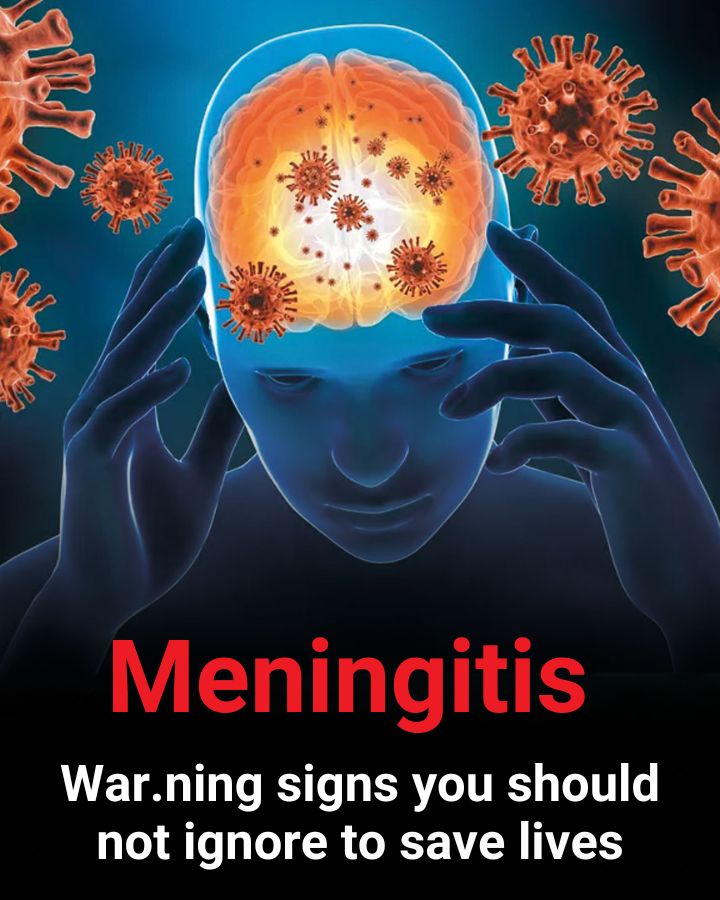A mild fever, a few body aches, and a headache might not seem like a big deal at first. Most of us would shrug them off as signs of the flu or maybe just fatigue. But underneath those seemingly harmless symptoms could be something far more serious—meningitis. This potentially life-threatening infection often strikes quickly and with little warning, and it can escalate in a matter of hours. Recognizing the early warning signs and acting fast could mean the difference between life and death. So how do you know when it’s more than just a fever? And what can you do to protect yourself and your loved ones?

One of the most dangerous aspects of meningitis is how its early symptoms can mimic common illnesses like the flu or stomach virus. That’s why it’s crucial to know the red flags. One major sign is neck stiffness—pain so severe it makes it hard to move your head. Another is sudden sensitivity to light and sound, known as photophobia and phonophobia. If you find that bright lights or everyday noises suddenly feel unbearable, it could be a sign. Also, watch for purpura fulminans—red or purple spots on the skin that don’t fade when pressed. In babies, the symptoms can be different but just as urgent: extreme tiredness, excessive sleep, or a bulging soft spot on the head should all be taken seriously.
Time is critical when dealing with meningitis. Some forms, such as meningococcal C, are known as “fulminant” because they can become severe or even fatal within hours. Without prompt medical attention, the infection can lead to permanent disabilities like limb amputations, brain damage, or seizures. In the worst cases, it can be deadly. That’s why immediate action is necessary the moment symptoms appear.
Prevention is the best line of defense. Starting January 1, 2025, France made meningococcal B vaccination mandatory from birth in response to a 72% spike in cases in 2023. Vaccination is one of the most effective ways to protect against this dangerous infection. But beyond immunization, simple habits can help reduce your risk. Wash your hands frequently, avoid sharing eating utensils, drinks, or toothbrushes, and wear a mask if you’re sick. Organizations like “Audrey – Méningites France,” founded by grieving parents, work tirelessly to promote awareness and early detection.
If you’re ever in doubt, don’t wait. Call 911 or head to the emergency room. It’s better to overreact than to overlook a potentially deadly illness. Early detection and treatment can significantly improve the outcome. Raising awareness, encouraging vaccinations, and spreading knowledge about the warning signs are all crucial to saving lives.
Just like meningitis, there are other types of pain that might seem minor at first but could signal something serious. Painful urination, for example, may point to a urinary tract infection (UTI), especially if it’s accompanied by a frequent or sudden urge to go. While often caused by bacteria, it could also be linked to kidney stones or prostate problems in men. Ignoring it could lead to complications. Another symptom not to ignore is leg pain accompanied by swelling, redness, and warmth. This could be Deep Vein Thrombosis (DVT), which can turn into a pulmonary embolism if the clot travels to your lungs. That’s a medical emergency.
Throat pain can also be more than just a sore throat. If it feels like you’re swallowing glass, and it’s paired with fever or voice changes, it could be something more serious than strep throat. Chest pain is another big one—it can signal a heart attack, especially if you also feel dizzy, short of breath, or break out in a cold sweat. Don’t wait it out; get help immediately.
Severe headaches are easy to dismiss, but they can sometimes be signs of serious conditions like a brain aneurysm, stroke, or even meningitis. If your headache comes with nausea, confusion, or vision problems, it’s time to call a doctor. Lower back pain can be caused by something as simple as a pulled muscle, but it could also indicate kidney stones, herniated disks, or, in women, endometriosis. Finally, pelvic pain in women is often blamed on periods or cysts, but it could also be related to more dangerous issues like ectopic pregnancy or reproductive cancers.
If you’re feeling pain that’s new, unusual, or persistent, don’t tough it out. See a doctor. Getting checked out early is always better than waiting for things to get worse. Whether it’s meningitis or one of these other silent threats, being informed and proactive is your best chance at staying healthy and safe.





